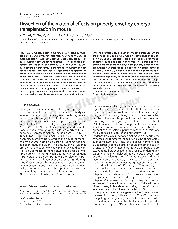摘要
Puberty onset in mammals is affected by multiple genetic and environmental factors. Among which, the maternal effect could have played a considerable role. In our previous study, we found that the F1 offspring from reciprocal crosses between C3H/HeJ (C3H) and C57BL/6J (B6) mice differed significantly in the timing of puberty in both sexes, though they had identical genomic background. In order to dissect the causative factors to such phenomenon of maternal effect, embryos from reciprocal crosses of C3H/HeJ and C57BL/6J mice were collected and transplanted to the uterus of either strain of mothers, and the puberty onset of pups were compared between different recipient mothers and egg origins. The results showed that the male pups from C3H recipient mothers attained puberty onset earlier than those from B6 recipients significantly, while the female pups did not show such difference. On the other hand, the egg origin made no difference in the puberty onset of either sex, yet it influenced the birth weight of female pups significantly (p<0.05). The manipulation of embryo transplantation delayed the puberty onset of pups dramatically. A mitochondria substitution strain between B6 and C3H (BmC), which had the genome background of B6 and a mitochondrial hyplotype of C3H, had the same phenotype of puberty onset as B6. The integrated results indicated that the uterine environment was the major causative factors to the maternal effect on the differential puberty onset in reciprocal crosses of F1 hybrids between B6 and C3H mice. (J. Endocrinol. Invest.
- 出版日期2012-8
- 单位上海实验动物研究中心; 东华大学
